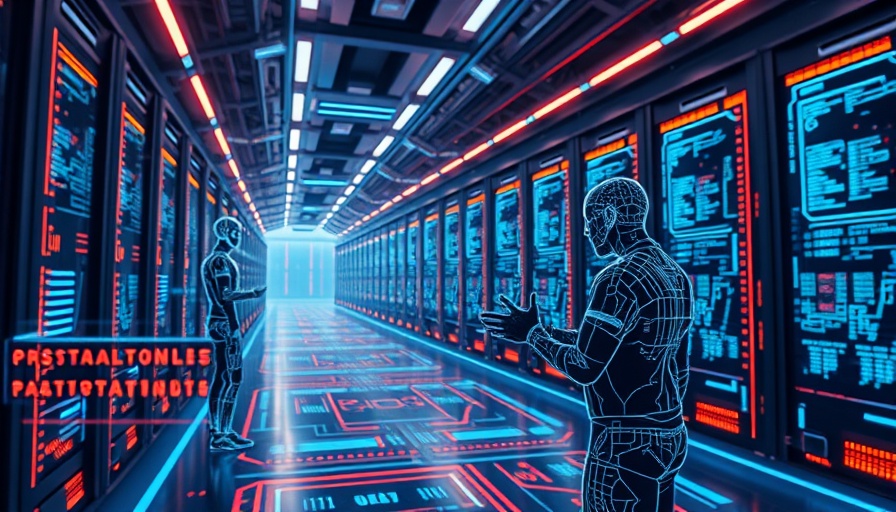
The U.K.'s Groundbreaking Approach to AI Security
The United Kingdom has taken a remarkable step forward in the realm of artificial intelligence (AI) regulations by unveiling a ‘world-first’ Cyber Code of Practice tailored for AI developers and system operators. As industries around the globe increasingly adopt AI technology, the need for robust security measures has never been more critical. This voluntary framework introduces a set of 13 guiding principles aimed at safeguarding AI systems from cyber threats, system failures, and data vulnerabilities.
Understanding the Code's Framework
The newly established AI Cyber Code of Practice outlines essential protocols for developers, system operators, and organizations involved in AI. These 13 principles cover various aspects of AI security, including ensuring systems are designed with security in mind, conducting thorough risk assessments, and fostering transparency in how user data is managed. Such inclusivity signifies a forward-thinking approach to not only enhancing security but also promoting responsible AI development.
Why This Code Matters
For executives in fast-growing companies embracing digital transformation, understanding and implementing this Cyber Code of Practice is imperative. The principles serve as a roadmap for integrating AI into business operations while minimizing associated risks. For instance, one of the recommendations urges organizations to implement security training programs aimed at educating staff about evolving AI threats—a step that can significantly mitigate the ramifications of potential breaches.
Innovative Risk Management Strategies
AI developers and data custodians are encouraged to adopt innovative risk management strategies outlined in the Code. These include maintaining a detailed inventory of AI assets, conducting regular evaluations concerning AI-specific attacks such as data poisoning, and securing supply chains. By establishing these practices, organizations can avoid vulnerabilities that can have far-reaching consequences in an increasingly interconnected digital landscape.
Emphasizing Responsibility in AI
An essential tenet of the Code is enabling human responsibility in AI systems. Communicating the implications of AI decisions and ensuring that users understand their responsibilities is paramount. This makes clear the shift towards a more ethical use of technology, aiming to foster trust between businesses and the consumers they serve.
Future Implications of the AI Cyber Code
The implementation of the U.K.'s Cyber Code of Practice holds significant implications for the future landscape of AI regulation and development. As more countries observe this initiative, there could be a ripple effect, inspiring similar frameworks worldwide. This could lead to a more standardized approach to AI security, ensuring that as technology advances, it is safeguarded against potential threats, fostering an environment conducive to innovation.
Conclusion
The U.K.’s Cyber Code of Practice represents a pivotal step towards a secure AI future. For organizations involved in AI development, this code not only outlines essential security practices but also emphasizes the ethical dimensions of AI technology. As we navigate an era defined by rapid technological advancements, embracing these principles will ensure that companies can thrive securely, paving the way for future innovation.
 Add Row
Add Row  Add
Add 




Write A Comment